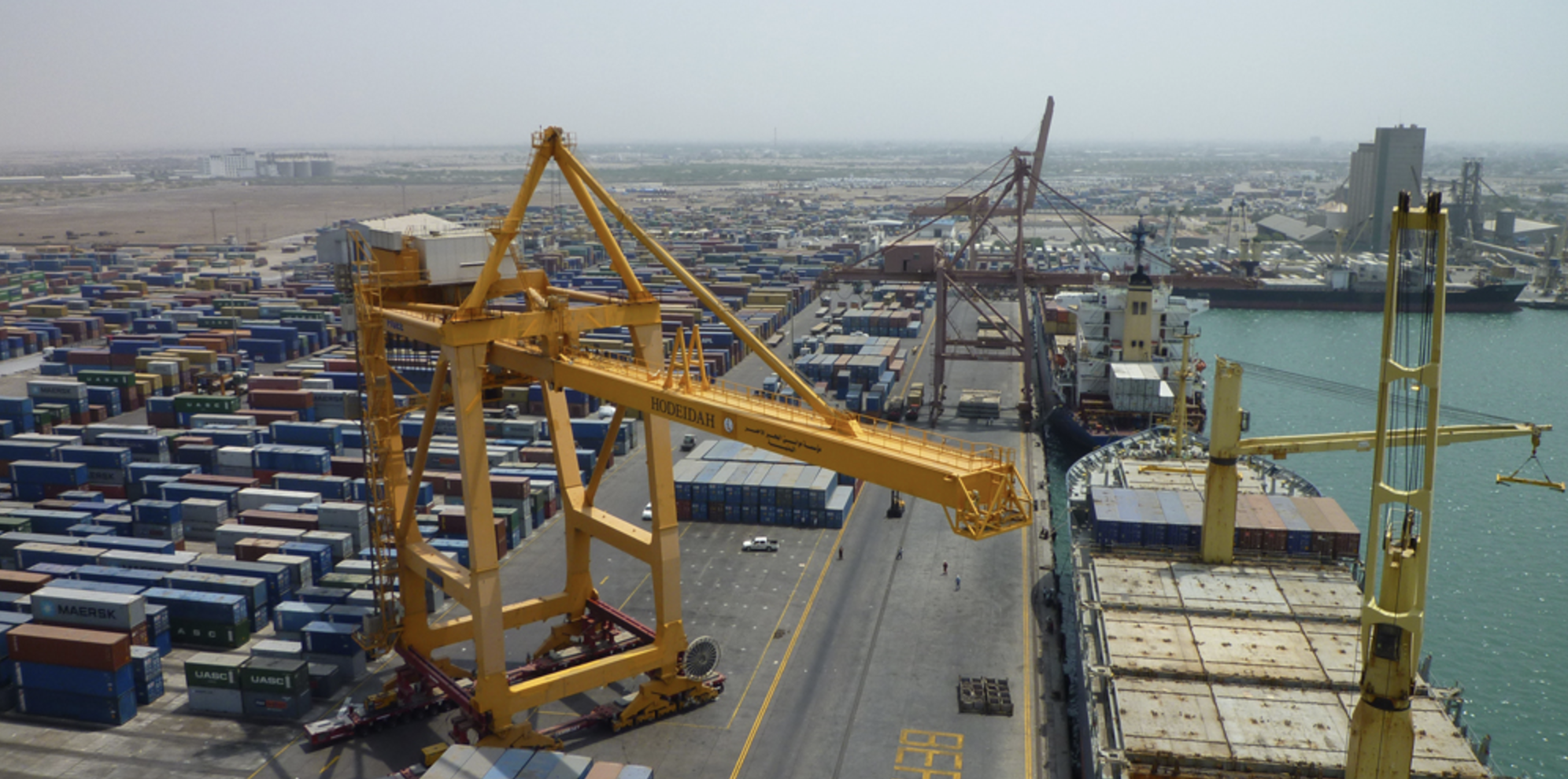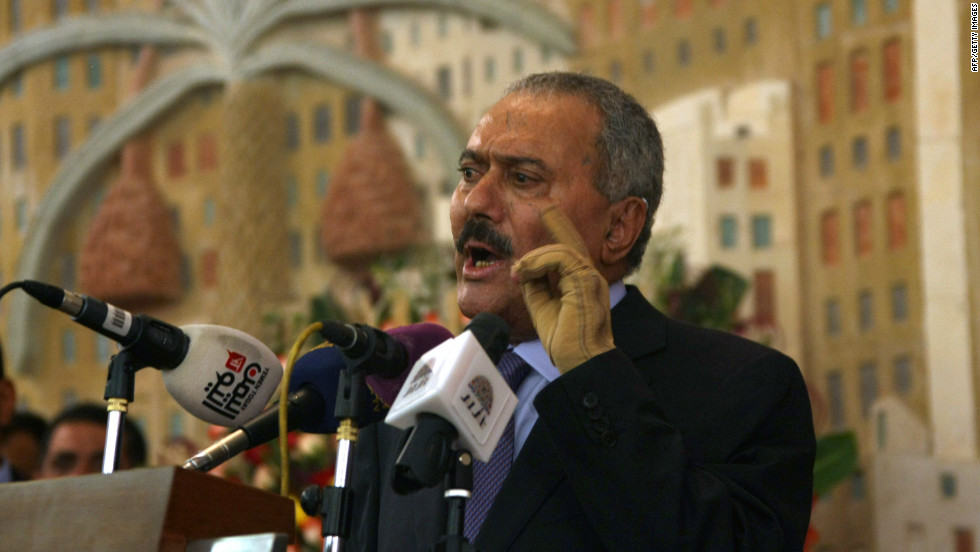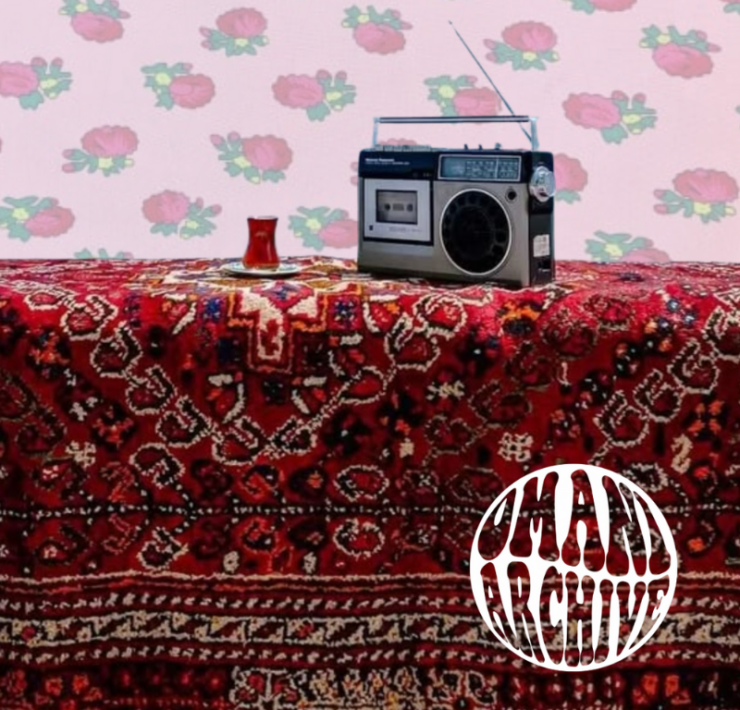International eyes have, for once, been on Yemen in recent weeks, as the catastrophic humanitarian situation has brought the country to the brink of famine. The men, women and children who have survived the brutal conflict thus far are currently facing starvation, as military blockades prevent aid from reaching those in dire need.
One such blockade is in place in the Western port town of Hodeidah, which has become a key strategic location in the country’s ongoing war. The Houthi forces who seized power in the capital, Sana’a, in 2014 currently control the port. The Saudi-led coalition, which supports President Abd Rabbuh Mansour Hadi, enforced the blockade in an attempt to cut off the Houthis’ supply of weapons and logistical support, some of which has reached Hodeidah from Iran.
 The Saudi-led coalition is currently planning an offensive against the port town of Hodeidah, which is currently held by the Houthis (image: Container News)
The Saudi-led coalition is currently planning an offensive against the port town of Hodeidah, which is currently held by the Houthis (image: Container News)
Saudi and Emirati forces are currently planning an offensive to take back Hodeidah, which they believe will turn the tide of the conflict in their favour. They recently dropped flyers on the town from the air warning residents to leave for their safety. The coalition is playing a dangerous game, as such an offensive would meet harsh resistance from Houthi forces on the ground and would inevitably worsen the humanitarian crisis.
The expansion of the conflict would likely also benefit extremist groups like Al Qaeda in the Arabian Peninsula (AQAP) and Islamic State (IS). AQAP and IS have thrived in war-torn Yemen’s environment of chaos and disarray, taking advantage of the political vacuum and the fighting on the ground to gain territory in the south of the country. Some experts have suggested that these extremist groups are the only forces actually winning in Yemen’s brutal and protracted war.
 Extremist groups including ISIS have exploited the instability in Yemen to expand their presence in the country (image: RT)
Extremist groups including ISIS have exploited the instability in Yemen to expand their presence in the country (image: RT)
However, even if the offensive against Hodeidah were a success and the coalition managed to regain control elsewhere, the question of political reconciliation remains. President Hadi was installed after the 2011 uprising succeeded in ousting long-serving dictator, Ali Abdullah Saleh. Hadi’s leadership has been weak and uninspiring at best and he has failed to win widespread support within Yemen. To add to his lack of legitimacy, he was driven out of the country early on in the conflict and has since been residing in Riyadh, ‘leading’ the opposition to the Houthis from the Saudi capital.
Former President Ali Abdullah Saleh, who has aligned with the Houthis in an attempt to claw back his power, also presents an issue. The cunning Saleh ruled the country for three decades, practicing a risky divide and rule strategy he referred to as “dancing on the heads of snakes”. For nearly thirty four years, Saleh succeeded in keeping the myriad of Yemeni tribes and political groups weak, fractured and dependent on his financial and political patronage.
The fact that he has joined forces with the Houthis – against whom he fought six wars during his presidency – demonstrates his pragmatic, opportunistic and uncompromisingly determined leadership style. Alongside having nothing to lose, Saleh retains significant influence in Yemen, including within the military. While his alliance with the Houthis is certainly a marriage of convenience, he will not go down without a fight.
 Ousted President Ali Abdullah Saleh has aligned with the Houthis in an attempt to regain power in Yemen (image: CNN)
Ousted President Ali Abdullah Saleh has aligned with the Houthis in an attempt to regain power in Yemen (image: CNN)
Internal division is nothing new to Yemen. Tribal, socioeconomic and political tensions have flared up repeatedly in the country’s recent history, but the humanitarian situation today brings a distressing new edge to the country’s protracted instability. While Yemen’s long-term fate is uncertain, its immediate future remains as it has been for the last two years – with only despair and destruction in sight.






